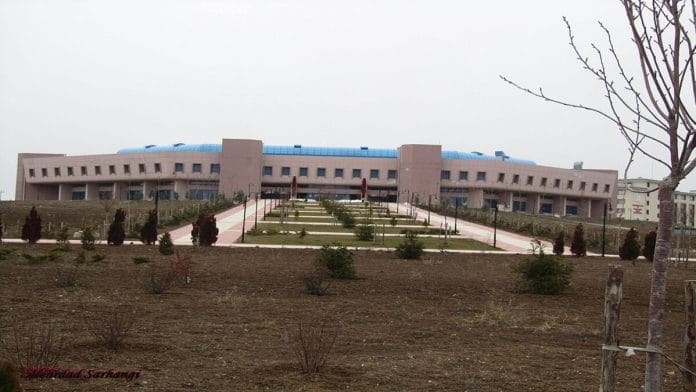New Delhi: For Indian students, the wait for UK and US visas has grown endless. Their prospects of returning to China — which they had to leave because of the pandemic — and Ukraine, which they fled because of the ongoing war, also remain uncertain.
Indians’ options for studying abroad have thus been drastically curtailed. And it’s in this uncertain time that Turkey is making its own bid to emerge as a contender in the higher education stakes.
Turkey, which saw a record number of Indian tourists this year, has 208 universities and 50,000 programmes. In an interview with ThePrint, Turkish Ambassador to India Fırat Sunel said his country had roughly 2,65,000 international students — primarily from Africa, the Middle East, Eastern Europe, and Central Asia.
“The number is quite low for Indian students — about 1,000,” Sunel told ThePrint, adding that the number had been “slowly” increasing over the past five years.
Sunel said medicine and information technology (IT) were the most popular programmes among Indian students, but many also opted for specialised courses such as veterinary medicine, agricultural engineering, dentistry, physiotherapy, and hotel management.
For students, the greatest advantages are cheap tuition — caused mainly by the falling lira — job opportunities in Europe, and the quick processing of student visas, say educational consultants.
There are drawbacks, however — the most significant being that Turkey has very few high-ranking universities. In 2018, higher education analyst Quacquarelli Symonds’ (QS) Higher Education System Strength Rankings put the country’s higher education system at 43rd, just behind Egypt. India was ranked 26th.
“Turkish universities don’t usually feature in the top QS World University Rankings of universities in the medical field,” said Dipendra Chaubey, an education consultant. “MBBS courses in Egypt have a better ranking.”
This is especially significant since estimates show that 20,000-25,000 Indian students go abroad to study medicine each year.
Also Read: ‘NEET not an option’ — Medical students back from Ukraine seek road map from NMC to resume course
Low tuition, low world rankings
The Turkish lira has been on a decline in the past year, which means lower tuition fees.
Zeeshan Malik, a 32-year-old PhD student at Ankara Yildirim Beyazit University who’s originally from Uttar Pradesh, told ThePrint: “The tuition fees aren’t very high and because the lira is so low, they’re even cheaper after currency conversion. Right now, 1 lira is equal to 4.4 rupees”.
On the other hand, the economic crisis in Turkey that has led to the weaking lira has also caused inflation to soar — the country’s annual inflation rate hit almost 80 per cent in June, its highest level in about two decades. However, the Turkish envoy said this wouldn’t affect an Indian student’s lifestyle.
Then there’s the problem of the low rank of Turkish universities. Omair Anas, a 41-year-old assistant professor of international relations at Ankara Yildirim Beyazit University who’s originally from New Delhi, said that Indian medical students in particular should consider Turkey only if they plan to work in Europe after their education.
India’s National Medical Commission doesn’t recognise most MBBS courses from Turkey, he told ThePrint.
Sunel, however, argued that Turkish degrees are recognised all over Europe because Turkey is part of the European Higher Education Area (EHEA) — a collaboration of 49 European countries in the field of higher education that’s aimed at increasing staff and student mobility and facilitating employability, according to its objectives.
‘Language barrier’
The language barrier could pose another problem, say education consultants. Although some institutions such as Ankara University and Middle East Technical University do offer “parallel courses” — taught side-by-side in both Turkish and English — most courses continue to be taught in Turkish.
“Many Turkish universities offer courses both in Turkish and English mediums,” Malik said. “It is also fairly easy to learn Turkish because it’s similar to Urdu and Hindi,” he said, adding that he wrote his thesis for his master’s degree in Turkish.
Asked if English-medium courses were more expensive than those in Turkish, Sunel said: “English-medium courses are relatively expensive but definitely less expensive than in the US or the UK. We also have so many public universities offering high-class English medium courses. Many universities, even public institutes, offer a one-year foundation course to learn the Turkish language”.
(Edited by Uttara Ramaswamy)
Also Read: ‘Haven’t even seen a cadaver’ — despair grows for medical students as China won’t call them back






